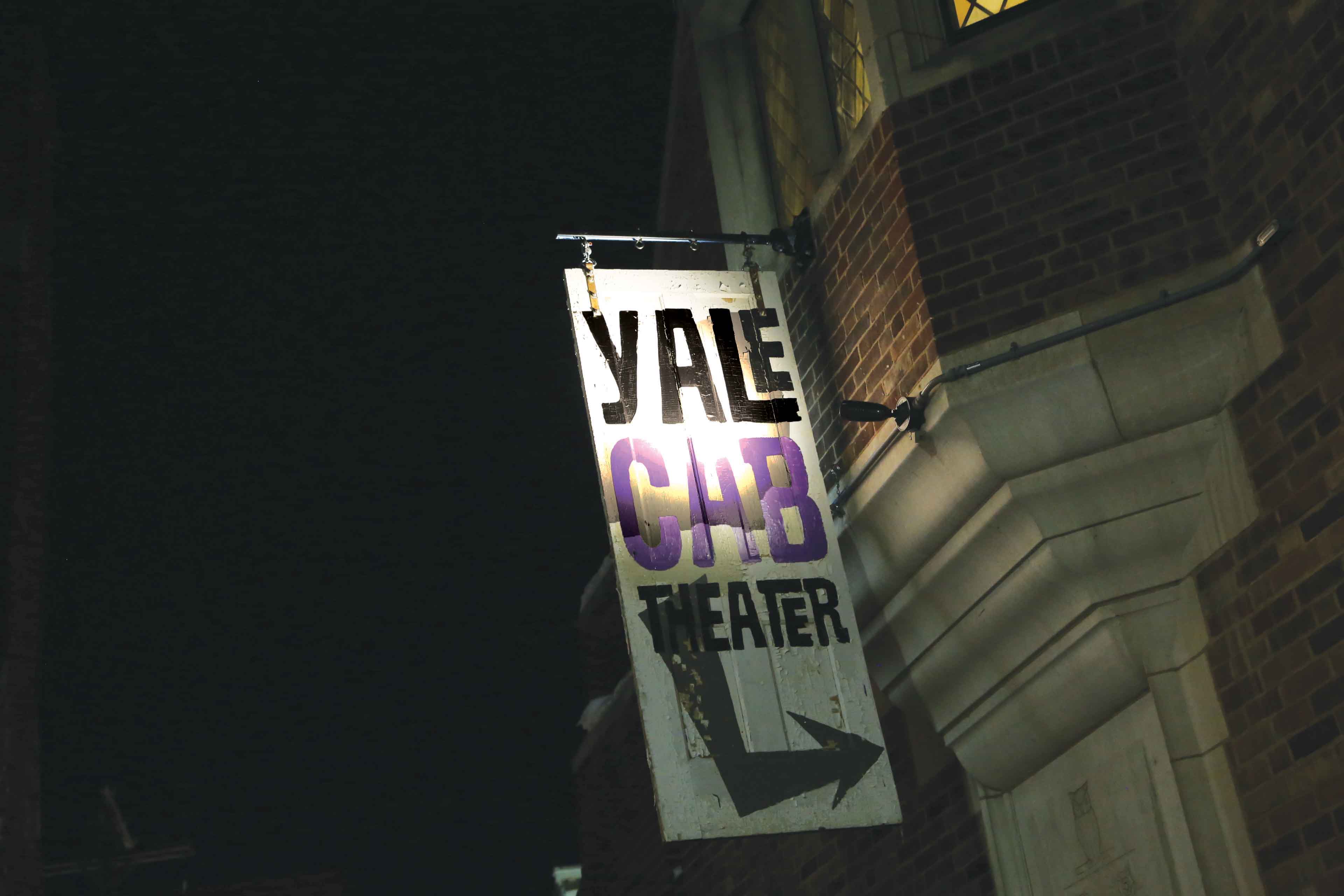
This past weekend, the Yale community had the opportunity to actively experience the aftermath of not just one but two geological disasters.
Shortly after midnight Sunday morning, the Yale Cabaret finished its closing production of “Current Location,” which initially opened Thursday night. The play was originally written in Japanese by Toshiki Okada — a preeminent figure in contemporary Japanese theatre, according to director Josh Goulding DRA ’17 — following the 2011 Tōhoku earthquake, tsunami and ensuing nuclear disaster.
The play features an all-female cast and explores the psyches of seven women from a small village, all responding differently to rumors of a looming disaster.
“I wanted to really conjure an atmosphere of strangeness,” Goulding said. “The conversation [in the play] is very kind of every-day, and yet the context of the conversation is this overwhelming, sublime, unspeakable disaster.”
The show began with the actresses sitting in the audience, together singing a haunting “oo,” the beginning of a choral song composed by Molly Joyce MUS ’17. Slowly, they started to stand, drawn towards a blue light hung in the center of the theater. Eventually, Emily Reeder DRA ’17 began to sing as the women progressed closer to the room’s nucleus. Once they were arranged tightly in the center, the song abruptly ended, and the lights went dark. Soon after, the lights rose again on a realistic scene between a few women in the village.
Actress Bianca Boragi ART ’17 mentioned how her mother’s family had a history of mental illness, which helped her relate to her character’s anxiety. Boragi said her character is always on the edge and is unsure of the future.
“It’s about finding a tension between the characters speaking with language that’s very ordinary, and yet in themselves, they’re terrified,” Goulding said.
Rehearsal began roughly two weeks ago when the cast first read through the script. They continued every day after, meeting for at least two hours each time, Boragi said.
Boragi is an interdisciplinary artist in the sculpture department of the Graduate School of Art, and like two of the other actresses, she is not affiliated with the School of Drama. Goulding said the characters represent a cross section of the village’s social hierarchy, leading him to assemble a diverse cast from various graduate and professional schools at Yale, including the schools of management, law and art.
Goulding also decided to set the play in a present-day New Haven public library. He instructed some of the actresses to change their names from the original Japanese in order to bring the characters closer to themselves.
“I like the fact that [the play is] really opened up to many readings and interpretations,” Boragi said. “It’s an abstract space that doesn’t depict a specific place in time or in a country, and it can allude to different events and situations happening in the present.”
The play was performed in the round, meaning that the audience surrounded the stage. Goulding said that his goal was to have the audience feel as if they were a part of the community of women. In the beginning and at various points throughout the play, the actresses sat in the audience, further blending the line between performance and reality.
The production ended with a long silence, an artistic choice not employed in most plays. The actresses remained in their seats until the audience first realized the story finished, before applauding the performers and formally concluding the show.
By making this choice, Goulding placed the audience in a deliberately uncomfortable situation, as viewers could not passively sit by but instead had to actively respond to the play by completing it themselves. At the end of Friday’s 8 p.m. performance, the audience began peering around, whispering in each other’s ears, perhaps starting rumors about the mystery in front of them, just like the characters in the play.
Producer Chad Kinsman DRA ’17 said that the characters each constructed their own reality, their own versions of the “truth” and their own lens through which to interpret the play’s conflict.
“I think in this country, at the moment, there are disasters happening which we can see very clearly, but I think on top of that we’re kind of fed this web of lies by the media,” Goulding said. “If [the audience makes] a decision about who they believe in this play, maybe when they are given contradictory information by the media, they can make a choice about what they think is true.”
“Current Location” is the fifth Yale Cabaret production this season.







